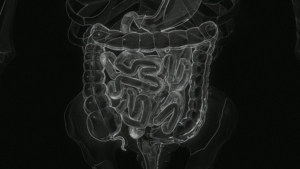
CHMP candidate check
The European Medicines Agency's Committee for Medicinal Products for Human Use (CHMP) published the results of its September meeting.
In the autoinflammatory field, the CHMP gave two recommendations. Based on the results of a Phase III head-to-head comparison with adlimumab (Humira. Abbvie), the Committee recommended Morphosys’/Janssen Research & Development, LLC’s IL-23 blocker Tremfya (guselkumab) for market authorisation in patients with moderate to severe plaque psoriasis. Guselkumab was approved this summer by the FDA. Furthermore, the Committee backed Boehringer Ingelheim’s adalimumab biosimilar Cyltezo (adalimumab) in the same indications Abbvie’s TNFalpha blocker is approved for: rheumatoid arthritis, juvenile idiopathic arthritis, axial spondyloarthritis, psoriatic arthritis, psoriasis, paediatric plaque psoriasis, hidradenitis suppurativa, Crohn’s disease, ulcerative colitis and uveitis. BI’s first recommended biosimilar was approved in the US in August.
In the cancer space, the CHMP gave the green light to 2 targeted small-molecule treatments, one generic and one biosimilar medicine. Tesaro’s PARP inhibitor Zejula (niraparib), an orphan treatment to ovarian cancer, and STEBA Biotech S.A.’s Tookad (padeliporfin), for the photodynamic therapy of adenocarcinoma of the prostate. Furthermore, the CHMP backed a generic to the multi-kinase blocker Gleevec, Imatinib Teva B.V. (imatinib), for the treatment of the blood cancer CML and gastrointestinal stromal tumours (GIST). Additionally, Samsung Bioepis received the first ever backing for a trastuzumab biosimilar in Europe. If Ontruzant (trastuzumab) will be approved it would compete with Roche’s Herceptin in the treatment of early and metastatic breast cancer, and metastatic gastric cancer. BMS experienced another blow to its PD1 checkpoint blocker nivolumab (Opdivo). After two studies were put on hold in the US (link), the immunooncology co-leader withdrew its application of Opdivo as treatment of hepatocellular carcinoma in adults who had previously been treated with sorafenib as the CHMP had doubts about the patient benefit of the treatment.
Two inhaled medicines for the treatment of adults with moderate to severe chronic obstructive pulmonary disease also received a positive opinion from the Committee: GlaxoSmithKline’s triple combination of fluticasone furoate + umeclidinium + vilanterol, Elebrato Ellipta and the company’s Trelegy Ellipta, consisting of fluticasone furoate + umeclidinium + vilanterol.
The CHMP for the second time issued of three negative recommendations
As reported before Raxone (idebenone) developer Santhera won’t give up (link.) and requested a re?examination. Furthermore, the committee resisted to approval of XBiotech GmbH’s interleukin-1 alpha targeting antibody as treatment of debilitating symptoms of advanced colorectal cancer. As XBiotech also AB Science requested re-examination of its kinase blocker Masipro (masitinib) as treatment of systemic mastocytosis
Two further companies withdrew ther applications for EU market authorisation: Mylan S.A.S. withdrew applications for Fulphila (pegfilgrastim), and the breast cancer and gastric cancer candidate Ogivri (trastuzumab). Accord Healthcare Ltd stepped back from MAA of the anti-infective Tigecycline Accord (tigecycline).



 Unsplash+
Unsplash+